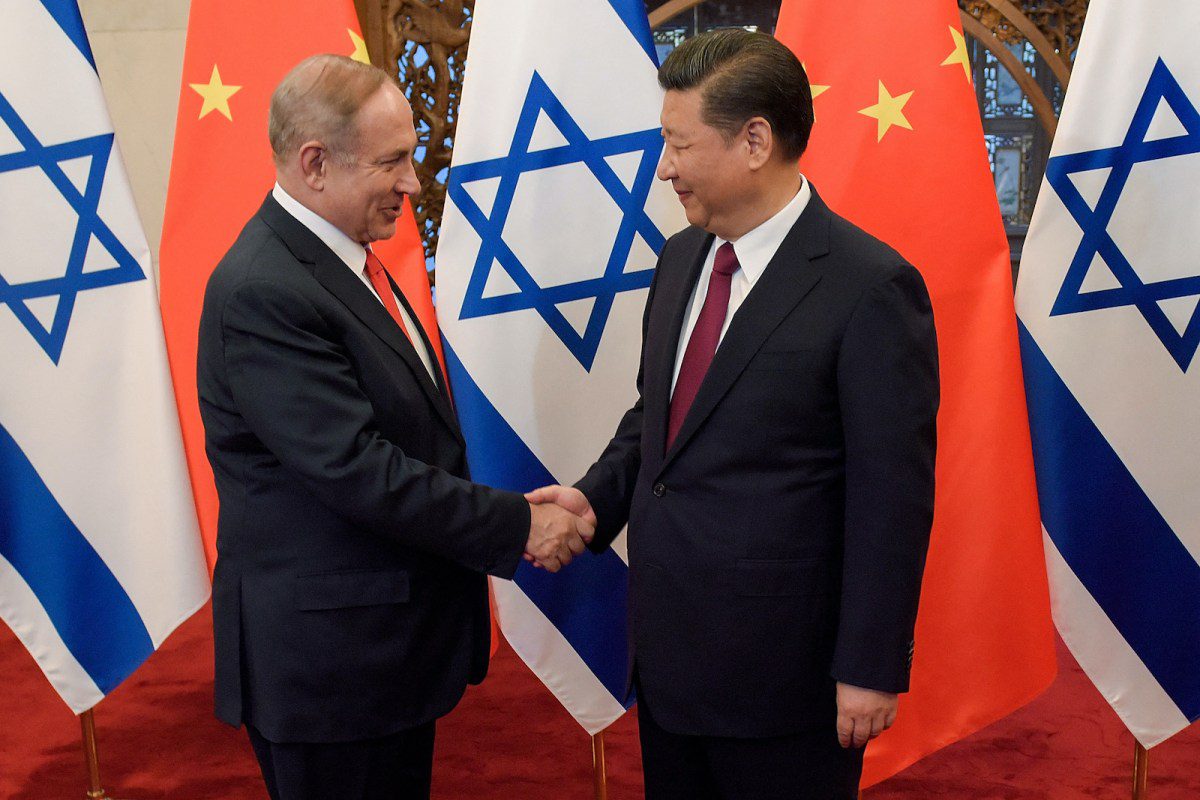Global Courant 2023-04-26 10:24:02
Chinese diplomats have been busy this year. The country has just announced its wish serve as a mediator between Israel and the Palestinians thanks to a productive effort to rebuild ties between them Saudi Arabia and Iran.
Entering the stalled Israeli-Palestinian conflict is the next step in China’s foreign policy, which until recently has been characterized by large-scale infrastructure projects and cheap lending to emerging countries.
With the era of cheap money closing, Beijing is seeking new ways to entrench its global influence and eradicate Washington’s dominance in the Middle East. Just don’t expect Israel-Palestine breakthroughs.
China has previously dipped its toe into the conflict with several iterations of one four point peace plan. The latest attempt in 2021 called for de-escalation measures, a boost to aid and the resumption of peace talks based on a two-state solution.
But America’s dominance over every process meant that China’s efforts were not taken particularly seriously. A shift in geopolitical forces in the region means people are now listening.
Resistance to dollar dominance
China’s recent diplomatic streak is one of the ways the country is trying to protect its status as a global superpower and weed out US influence. As part of the long-term goal of loosening the US dollar as the world currency, China has redoubled its efforts to get major oil-producing countries like Saudi Arabia to trade oil in yuan.
In South America there have been new discussions from BRICS member states such as Brazil about abandoning the dollar as a trading currency. If any of these rumors become reality, they will be a major headache for the United States.
Against these efforts, China’s advance in the Israeli-Palestinian conflict is an apparent attack on America’s position in the Middle East. And it doesn’t come out of the blue. Israel and China have quietly developed close military and trade relations over the past few decades, much to the anger of the US.
During a 2017 trip to Beijing, Israeli Prime Minister Benjamin Netanyahu said the two countries have a “married in heaven.” During that visit, they signed a far-reaching trade agreement called the Comprehensive Innovation Partnership.
After the European Union and the US, China is Israel’s third largest trading partner. But what is important to note is where the trade flows are directed. According to Time magazine492 of the 507 trade agreements between the two countries from 2002 to 2022 were in the technology sector, including IT, communications, agricultural technology and robotics.
China has also been pushing its infrastructure initiatives in Israel over the past decade. In 2021, Chinese companies were involved expansion of the port of Haifa. Washington expressed serious concerns about the partnership because the US often uses Haifa to dock parts of its Sixth Fleet.
Israel rejected the request when the US demanded to inspect the port to make sure there was no Chinese surveillance technology for the Sixth Fleet to spy on.
Attack on the Middle East
China’s footprint in the Middle East is growing as a result of decades of careful planning and quiet courtship, regardless of how America feels. With Chinese purchases of Middle Eastern crude oil increasing and the US divided on the future of its position in the region, Chinese influence will deepen and come fully into the light.
We can see the fruits of these years of careful planning with China’s diplomatic efforts between Saudi Arabia and Iran. The question now is whether China will be able to break the deadlock and forge a new approach to ending the Israeli-Palestinian conflict. Unfortunately, those prospects do not look rosy. Israel’s continued occupation of Palestinian land and livelihoods must turn into all just and lasting peace solutions.
Let’s look at the economic dimension. Israel’s technology sector is built around the use of the occupation as a valuable technology laboratory. For example, the Pegasus spyware software exported around the world would not exist without Israel’s occupation.
Israel’s matrix of control over Palestinian life is a perfect laboratory for testing surveillance technology. Most of the engineers behind the Pegasus system were trained by the Israeli military and tested their craft in the occupied territories. China is a major customer of this technology and probably does not want to risk losing these innovations.
Palestinians once again find themselves on the wrong side of a geopolitical struggle for power in which they are a pawn. Israel will use its warm relationship with Beijing and its burgeoning technological prowess to ensure that the status quo of its control over the Palestinians remains unchanged.
If there were useful support for the Palestinian cause in the Arab world, one would expect more pressure on Beijing to hold Israel accountable for its unending domination over Palestinian life. Yet the direction of travel happens in the other direction.
For example, Saudi Arabia could offer to trade more oil in yuan or open parts of Saudi Aramco to Chinese investors in exchange for concrete pressure on Israel to abide by existing international agreements and treaties related to Palestine.
As more Arab countries establish full and robust relations with Israel, few carrots or sticks can be used to ensure that Beijing acts as a reasonable broker. So it makes little difference from a Palestinian point of view whether China or the US think about the conflict. They can expect the same results, such as the Israeli entrenchment of its occupation and control over Palestinian life.
China’s push on Middle Eastern diplomacy has more to do with its status as a superpower eroding US prestige in the region than with resolving the Israeli-Palestinian conflict.
This article is provided by Syndication Bureauon which the copyright is based.
Similar:
Loading…








